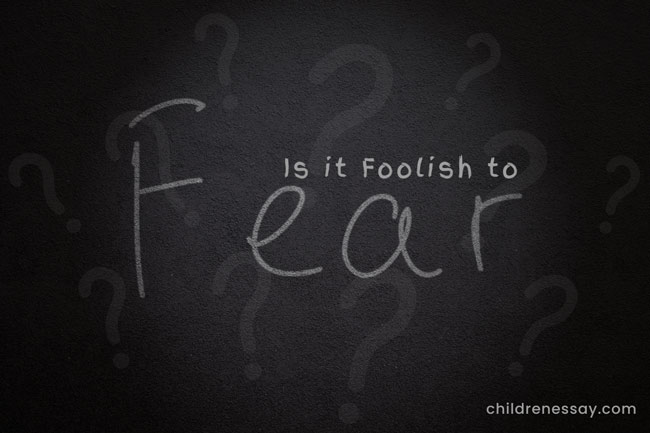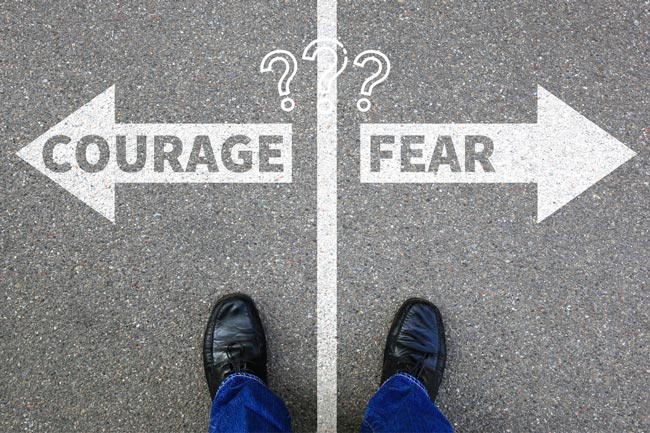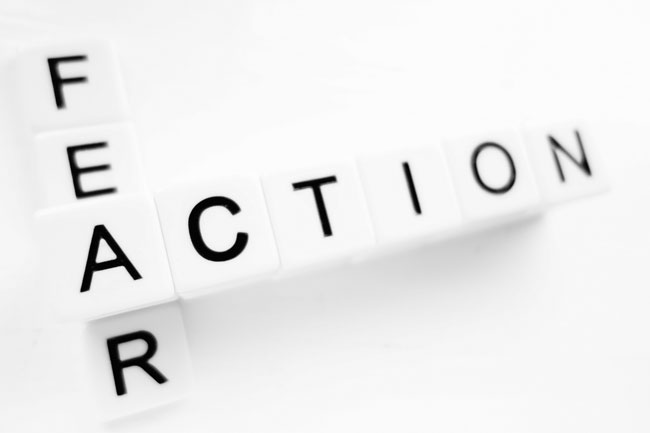Fear is a natural part of life. It can be used to protect us and help us navigate the world. It can, however, also become an irrational force that holds us back from experiencing new opportunities. But is it really foolish to fear?

In this article, we examine the positives and negatives of living with fear, diving into the psychological and physiological implications it has on our lives. Read on to find out as we explore whether it’s wise to embrace our fears or not.
Table of Contents
Is It Foolish to Fear?
The world is terrifying on many levels and in many different ways. Everyone’s life is full of unthinkable “what-ifs” and “uh-ohs”. In our culture, “fear” is often disguised as “stress”.
It is generally considered an indicator of maturity in adulthood when one experiences stress. Furthermore, fear is an unpleasant emotion that prevents us from reaching our full potential, severely negatively affecting our well-being. It is definitely not a sensible idea to include horror films where you pay to have your heart race.
Fear is a necessary reaction to emotional and physical risk that has played a crucial role in human evolution. For example, elevators, spiders, and public speaking don’t pose the same kind of immediate danger as they did decades ago. It’s still possible for some people to react strongly under certain circumstances by fighting, running, or freezing.
Fears continue to play a valuable evolutionary role in our day-to-day lives. They can provide healthy pressure that encourages us to act in the present so that our lives might be improved. That being said, there is a thin line between reasonable concerns and paralyzing anxiety (e.g., freezing for a moment). Our paranoid thoughts make it difficult for us to adapt to changing situations and act differently.
A person may have a specific phobia rather than fear if it interferes with their daily lives, persists, and focuses on a particular threat. Besides specific phobias, fear frequently manifests itself in different ways. For instance, social anxiety disorder, or social phobia, is characterized by a profound fear of being judged, assessed, and rejected by others. Socially anxious people may feel immense sadness, self-doubt, and hopelessness.
These manifestations of fear drain the life out of the people experiencing them. It disturbs your sleep, upsets your diet, interferes with your ability to concentrate, or even makes your muscles tense; This, in turn, leads to physical, mental, and emotional fatigue. In turn, this fatigue leads to ugly lifestyle changes, and the cycle slowly overtakes the individual.
Reading the downsides of fear WILL make you think that it is indeed foolish to fear, that by avoiding the emotion, one can be peaceful in their life. But let’s not reach conclusions before flipping the coin.
Also Read: How Is Your Life Different from Your Parents?
Why Fear is a Good Thing?
Fear is a good thing. Neuroscientists have discovered specific networks in the brain that, when triggered electrically or chemically, can induce fear even in the absence of external threats. It is not a sign of weakness that you are afraid. Fear is a natural emotion that the brain can experience. As a matter of fact, a lack of fear could indicate a severe brain injury.

Understanding Basics of Phobias
Fear is a mixture of instinct, knowledge, instruction, and anticipation.
Some Phobias Are Ingrained in Us: For instance, fear is triggered by pain because it has survival-related implications.
Other Phobias Are Discovered: Because of our adverse associations and prior experiences, we learn to fear specific individuals, places, or circumstances. For instance, if you have ever had a near-drowning experience, you may feel anxious around water in the future.
Other Phobias Are Taught or Instructed: Whether or not something should be feared is frequently determined by cultural standards. As an example, if a child witnesses someone screaming and running away from a spider, they may develop an intense phobia of spiders. Similarly, if a parent or caretaker repeatedly warns a child about the dangers of talking to strangers, they may eventually develop a phobia of unfamiliar people.
The development of a specific phobia may also be influenced by hearing stories about traumatic events, such as plane crashes. Fear can develop even without a frightening situation since it can be partially imagined. In fact, because of how effective our brains are, we develop conditioned fears for a variety of stimuli that aren’t even real (anticipatory anxiety). We experience fear as a result of what we think might occur.
All these layers of fear play a vital role as they must and should be managed. The ability to balance all of these types of fear/phobias leads to a well-balanced lifestyle without the adverse effects of fear.
Understanding Basics of Our Fear
Instinctive fear is the method of survival: This type is engrained in our behavioral patterns genetically. Our natural dread aids us in recognizing real dangers and shields us from them.
Fear that results from being aware of a potential threat is a trait we acquire throughout our lifetime. This kind of fright alerts us to our surroundings and the dangers that might present themselves. This kind of fear results from prior traumatic experiences and causes the individual experiencing it to develop a phobia.
It can be as simple as a fear of dogs because you’ve been chased by one. Another example of a severe form of anxiety is PTSD, where a person might have an anxiety attack when exposed to similar circumstances. This fear must be controlled, not eliminated, so that you are aware but not frozen by the circumstances.
People who are frightened or disrupted in their lives may benefit from therapy. Often, exposure therapy is used together with Cognitive Behavioral Therapy (CBT) to challenge and re-frame damaging beliefs to facilitate healing.
Instructive fear is what we learn from other people’s experiences; This is also a type of acquired fear, but it does not create a phobia associated with it. It strengthens the role of instinctive fear and helps a person deal with challenging situations with much more maturity and sensibility.
Anticipatory fear or anxiety is the fear of the unknown. Humans especially have this kind of fear as our brains are made to think and form complex imaginary situations about the future.
Feeling anxious is a normal and healthy response to potentially harmful or disturbing stimuli and is vital for survival. In some cases, however, the intensity or duration of an anxious emotion exceeds its initial trigger. It can also cause physical symptoms, such as shaking, sweating, nausea, and elevated blood pressure. These reactions can lead to an anxiety disorder.
Also Read: Should Teenagers Have a Part Time Job?
Is It Foolish to Fear Article Summary

Is it foolish to fear? That depends on what you’re scared of. If you’re afraid of things that pose a real threat to your safety, then no, it’s not foolish to worry about them. However, if you’re afraid of things that pose no threat to you whatsoever, then yes, it is foolish to fear them. The key to overcoming your fears is to first identify what they are and then determine whether or not they represent a real threat to your safety. If they do, take steps to avoid the thing you’re frightened of or protect yourself from it.
There is nothing wrong with being afraid – it’s a normal and natural emotion. However, if your fear is stopping you from living your life the way you want to, then it might be time to take action and address the issue head-on. Remember, the more you face your fears, the less power they have over you.
“The brave man is not he who does not feel afraid, but he who conquers that fear.” – Nelson Mandela
Bottom line: Fear of giving up perceived conveniences frequently prevents us from seeking happiness. But also, if you’re willing to hear the message that fear is trying to give you rather than push it away, you can use it to speed up the process of healing your body, mind, and spirit. It is not always foolish to be afraid as long as it is balanced, close to its natural level, and is not exaggerated.
